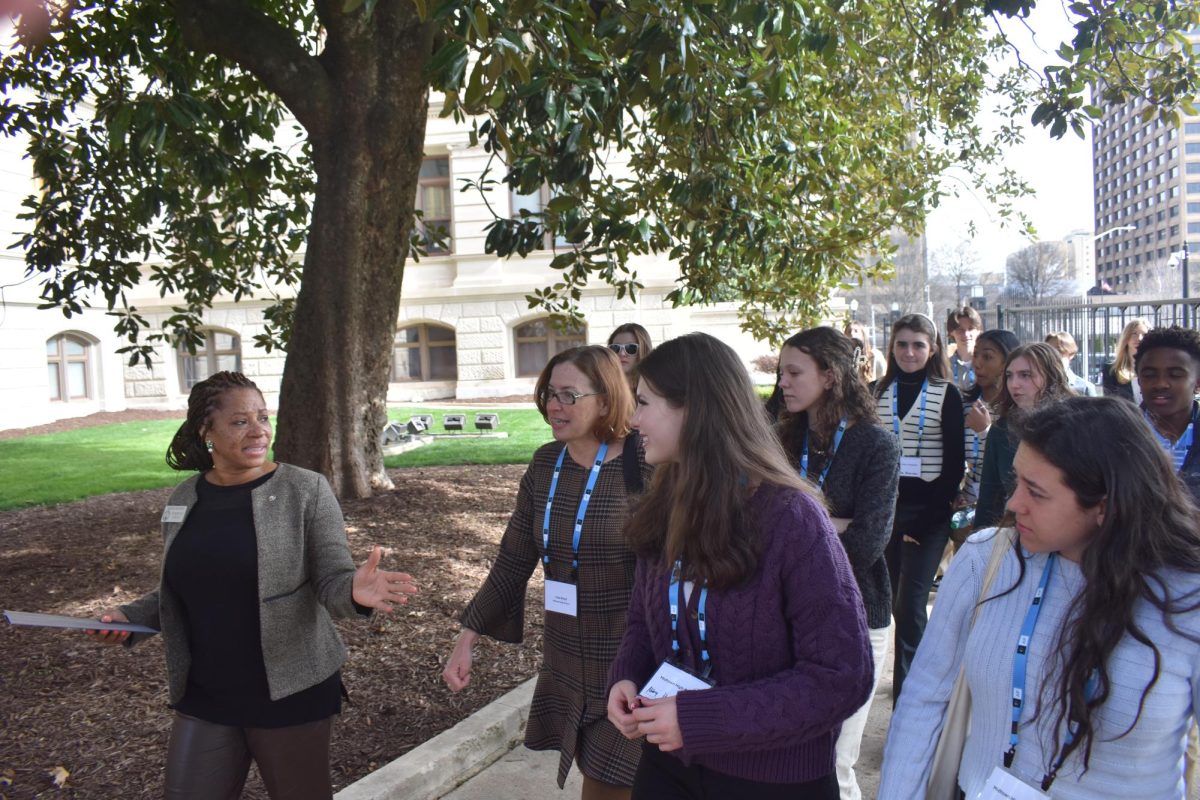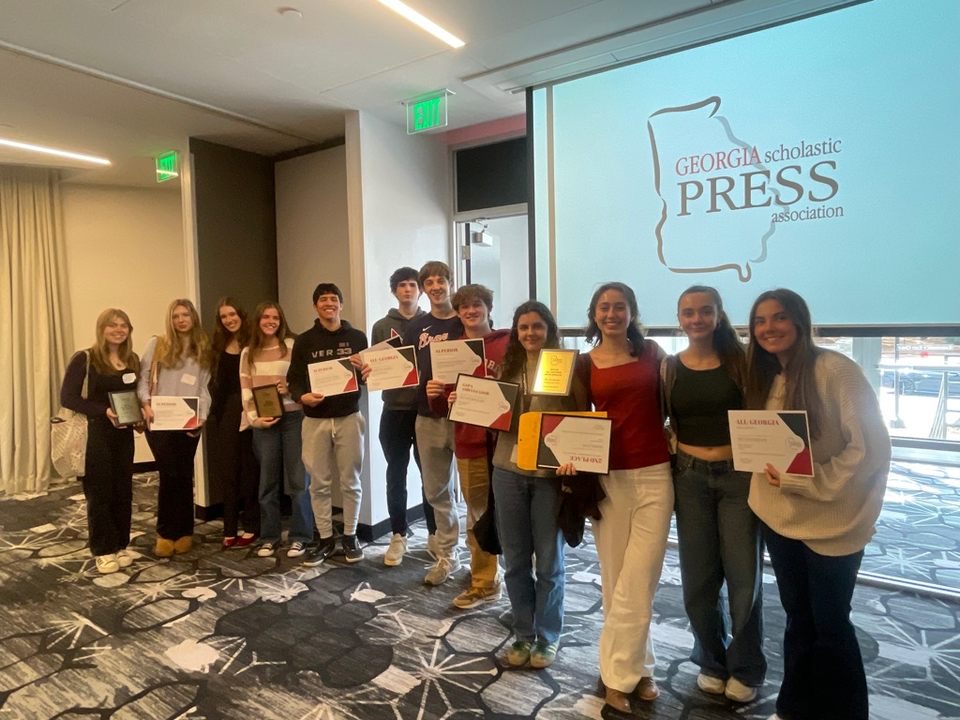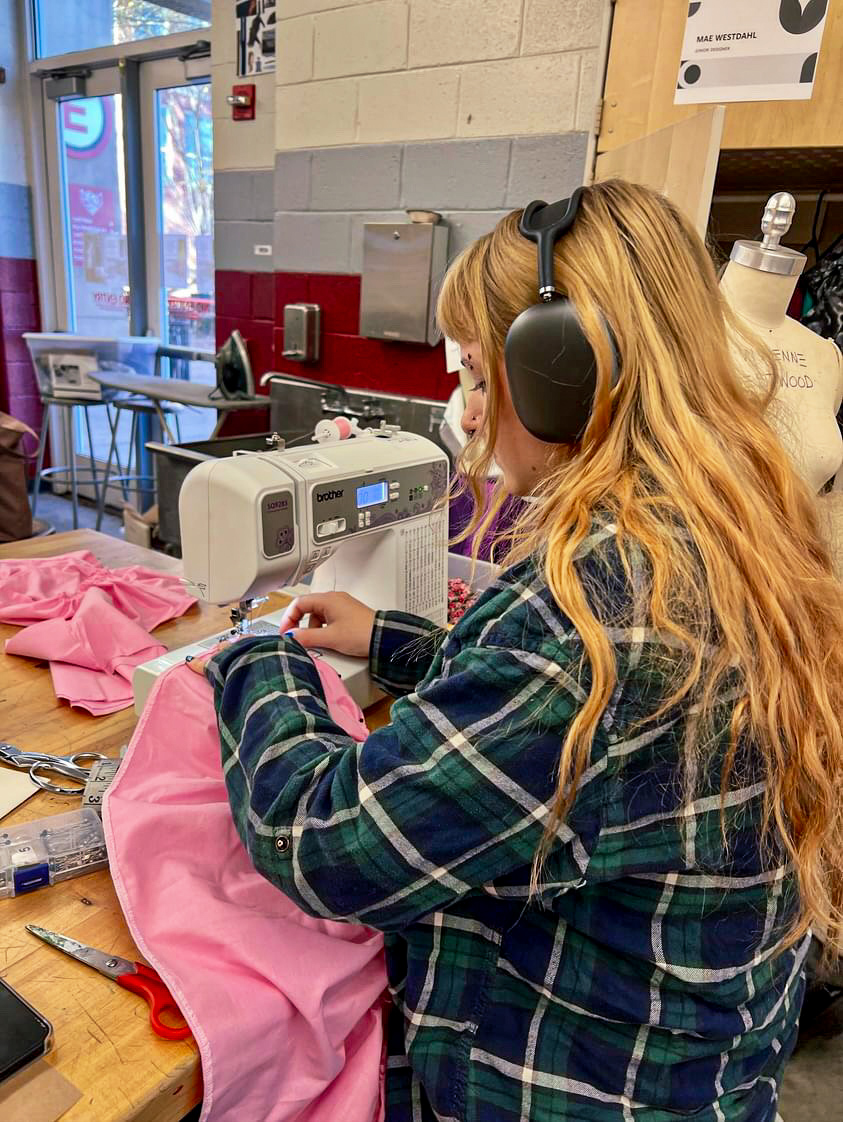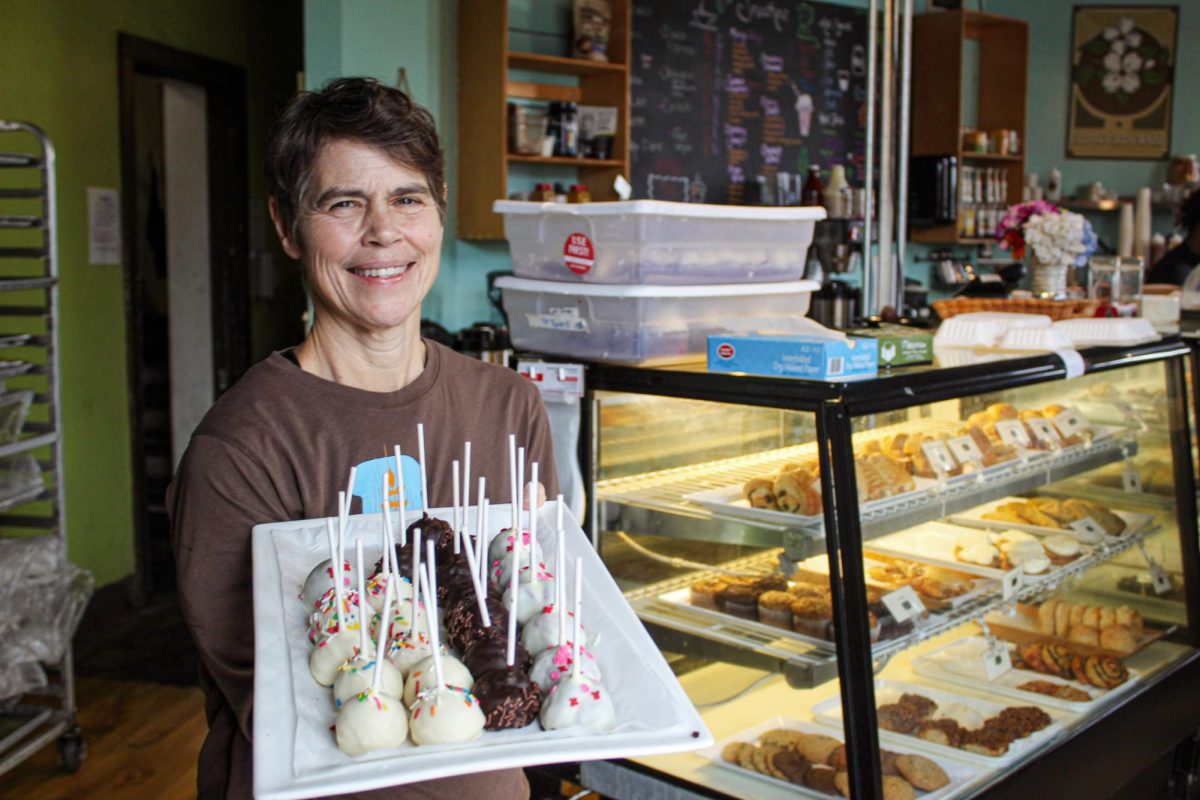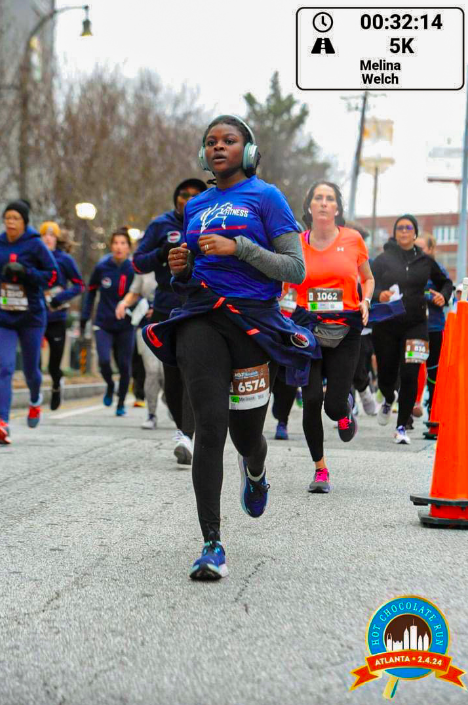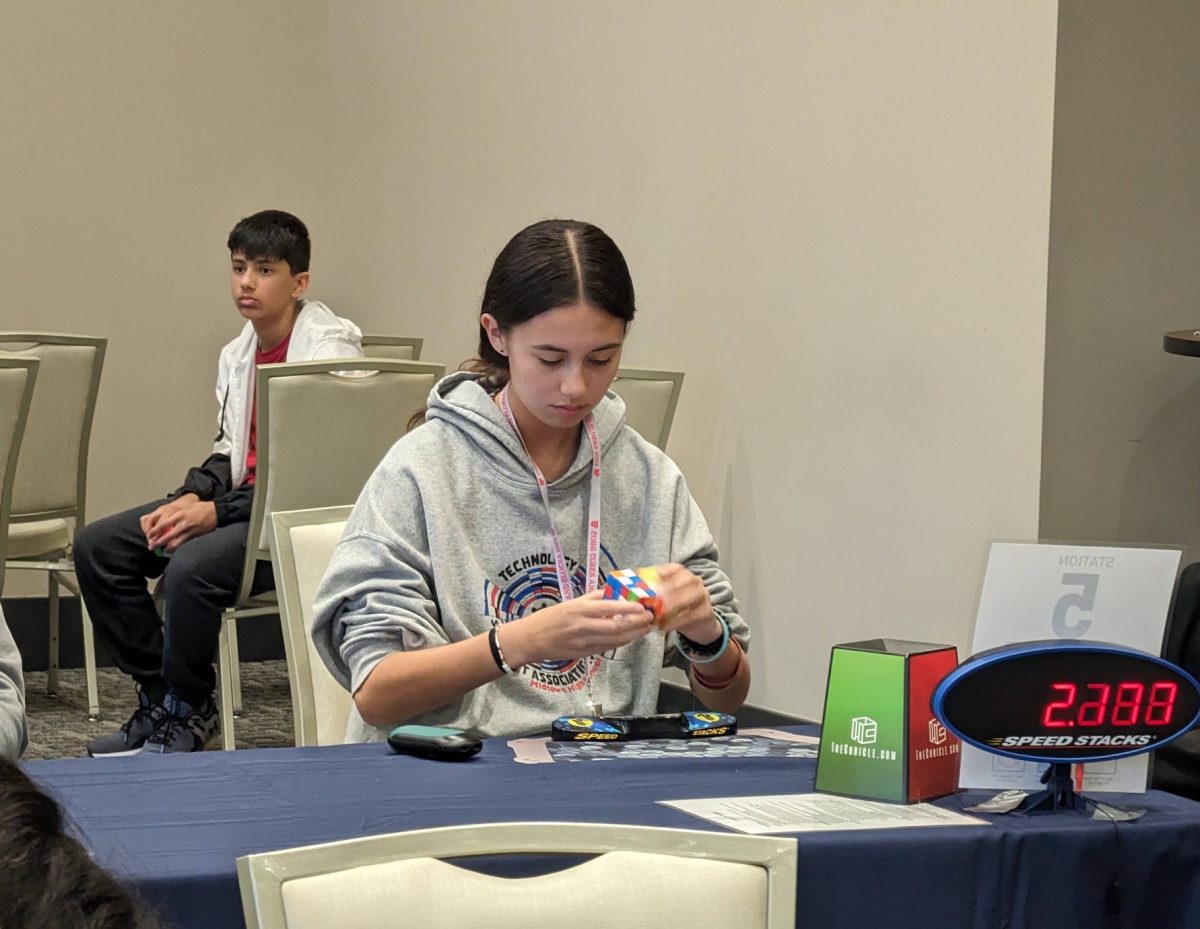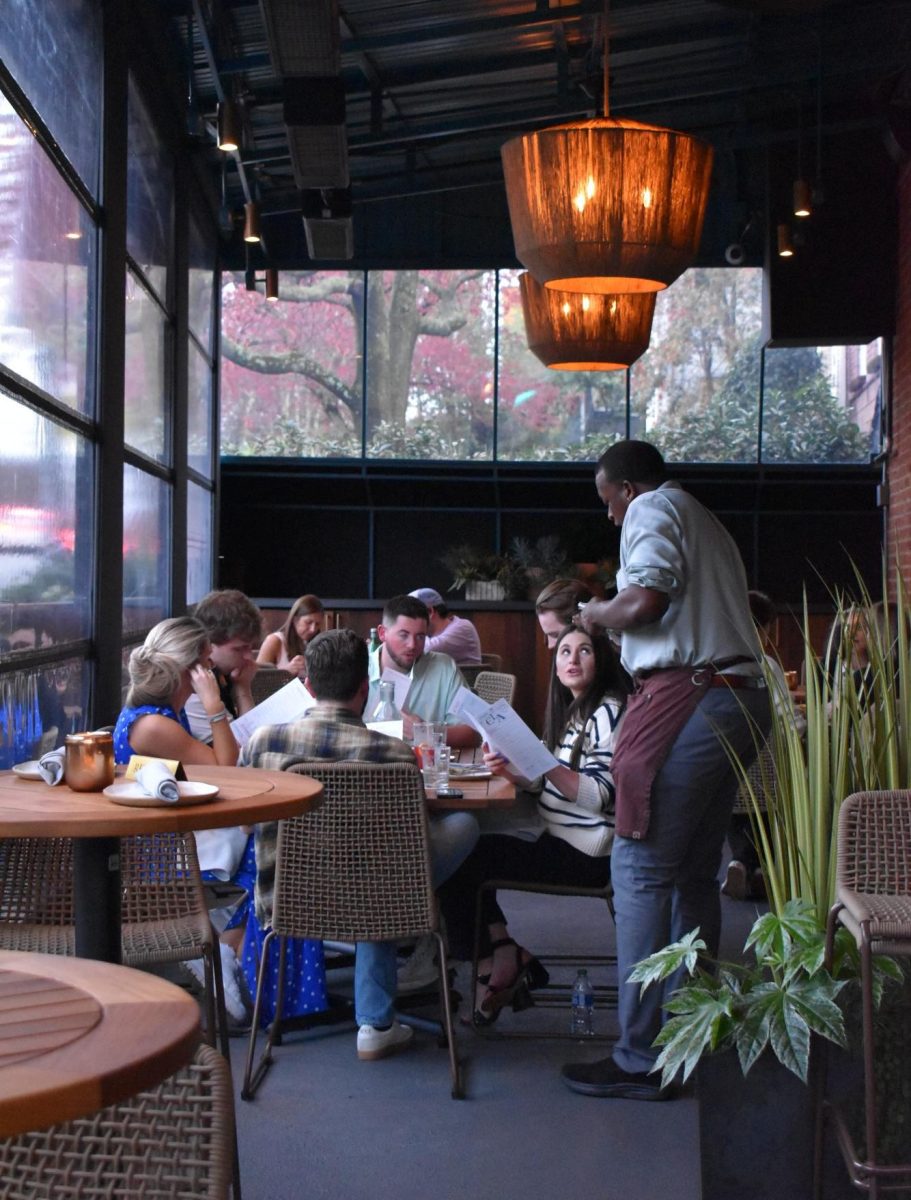Junior Laura Sommerville was in fourth grade when she realized she was different from her Morningside Elementary School classmates. It was 2004, and the entire country was caught up in election fever as Republican President George W. Bush sought a second term against Democratic challenger John Kerry. Sommerville, having heard her parents express their support for Bush, discovered she was alone among her classmates in defending him.
“In fourth grade all I knew was who my parents supported, but now that I know [the Republican] platform, I actually like them,” Sommerville said. “One girl came to school saying ‘Get your weedwackers and lawnmowers and take down the Bush!’”
Bush was succeeded nearly four years ago by Democratic President Barack Obama, but such inflammatory rhetoric is still common at Grady today, where students who are conservative or express support for the Republican party are overwhelmingly outnumbered by their liberal, Democratic-leaning peers.
A Southerner survey of 135 students found that 63 percent express support for the Democratic Party, 16 percent call themselves Independent, 18 percent say they are unsure of their political views, and just 4 percent declare themselves Republicans.
On the electoral map of Georgia, Atlanta has long been a blue dot in an otherwise deep red state. According to The New York Times, Democrat Rep. John Lewis won his 2010 reelection campaign in Georgia’s 5th District,which includes Grady, with 74 percent of the vote. Yet even in a liberal city, Grady’s near-total absence of conservatives is noteworthy.
“I think people are afraid to be public about what they actually believe sometimes because there are so many people [at Grady] who are like, ‘Ew, Republicans,’” Sommerville said.
Micheal Giles, a professor of political science at Emory, said demographic factors probably play a large role in explaining the breakdown of political affiliation at Grady. Giles said about 97 percent of African-American voters choose Democratic candidates. African-Americans are the largest racial group at Grady, comprising 65 percent of the population. Additionally, Giles said that people who choose to live in cities tend to have values that align with the values of the Democratic Party.
“Who is going to appreciate the Midtown community?” Giles said. “It’s going to be someone who wants a closer-knit community, who is going to self-select into the higher taxes in the city.”
Junior Luke Webster said his parents support the Republican Party. While he doesn’t have strong political views himself, he does feel that living in Midtown has influenced his perspective as well as that of his parents. His father, John Webster, grew up in Meridian, Miss., while his mother, Julie Webster, grew up in Longview, Texas. Luke Webster said that Midtown is far more diverse than the smaller, more homogeneous towns where his parents were raised.
Kyle Constable, a senior at Lee County High School in south Georgia, population 28,000, said about 70 percent of his classmates lean Republican. According to the 2010 census, Lee County is 77 percent white and 18.6 percent African-American. Fulton County, where Grady is located, is home to more than 900,000 people. Fulton is 44 percent African-American and 44.5 percent white.
“At Lee County, it would be difficult for me to say anything other than, ‘It’s tough to be a liberal,’” Constable, founder of the Lee County High School Young Republicans, said.
Constable’s Democratic counterpart, senior Brian Seo, heads the LCHS Young Democrats and voiced concerns about holding political views that render them a part of a tiny minority, much like Grady’s Republicans.
“Teachers are for the most part very conservative, and tend to stay away from Democrats and our organization,” Seo said. “Some of the local citizens joked and jeered at us when we participated in the Christmas parade.”
Seo and Constable both said that despite occasional antipathy towards liberals, they have seen no instances of outright hostility towards Democrats in Lee County.
Sommerville feels that her neighborhood, Virginia Highland, is fairly mixed politically. During the 2008 campaign, however, her parents’ McCain-Palin sign was burned in their front yard.
“All that remained was the charred metal frame sticking out of the grass,” Sommerville said.
Even when highly visible campaigns are over, discussions about politics among students continue, and some conservative students and teachers said they feel like an unwelcomed minority.
Sophomore Becca Martin, who considers herself socially liberal but fiscally conservative and identifies herself as a Republican, said she felt uncomfortable during some class discussions about politics.
“Most of the time I don’t [contribute],” Martin said. “I usually don’t put myself out there because I know I’m the only Republican in the room.”
Sommerville said she had noticed a trend among Democrats of intolerance toward conservative political viewpoints.
“[Some Democrats] talk about being open-minded, but then they’ll shut other people down when they’re trying to defend their views,” Sommerville said. “People take it personally when I disagree with them.”
Lou Sartor, history teacher and former AP Government teacher, said public school teachers tend to view Democrats as more friendly to their line of work, and have more faith in what government can do.
James Campbell, Grady literature and AP Government teacher, identifies as fiscally conservative but liberal on many social issues. He said that he is one of the few conservative Grady faculty members, which has sometimes led to uncomfortable moments.
“There’ve been times when I was having a conversation with one person and it kind of ended with three or four people debating against me,” Campbell said.
Some conservative students feel that teachers tend to show a subtle bias against the conservative point of view. Martin recalled watching a documentary that was highly critical of Fox News, known for its conservative slant, in her journalism class.
“That’s OK, but if you aren’t going to give another side to it, that’s when it gets on my nerves,” Martin said. “Fox does lean conservative, but other news stations are biased too.”
Conservatives at Grady also expressed concern that the under-representation of conservatives hampers open discussion and limits opportunities to expose students to varying political ideologies.
“Especially in a government class, I’m trying to get people to discuss ideas and it’s hard when people only discuss one side,” Campbell said.
Alumnus Tyler Olson, currently a freshman at Georgia Tech, considers himself a Reagan Democrat– fiscally conservative but socially liberal. While at Grady, he noticed that many students were poorly informed and yet didn’t shy away from voicing their opinions—loudly.
“Most Grady students think they know a lot,” Olson said. “Sometimes they think so highly of themselves that they close their eyes while lecturing their [perceived] inferiors.”




